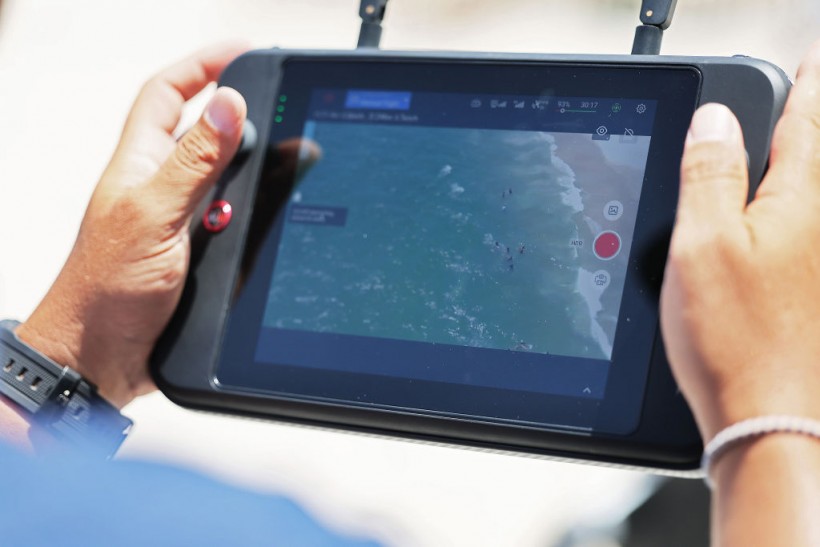Insufficient knowledge about the biology, prey, and ecosystem changes of sharks found in New York's coastal waters prompts scientists to call for expanded research.
Experts challenge the idea of increased human-shark interactions in an article, titled "Emerging human-shark conflicts in the New York Bight: A call for expansive science and management" recently published in the Journal of Fish Biology, due to growing shark populations and feeding patterns.

Lifeguarding supervisor Cary Epstein operates a new shark-monitoring drone as he monitors the waters for sharks at Jones Beach State Park on July 07, 2023 in Wantagh, New York.
Shark Biology in New York's Coastal Waters
Oliver N. Shipley, Ph.D., the lead author and a Research Assistant Professor at Stony Brook University's School of Marine and Atmospheric Sciences (SoMAS), along with fellow researchers, assess the existing knowledge about shark biology in the New York Bight region.
The researchers highlight the contrast between scientific knowledge and media portrayals of sharks in the New York Bight region and propose future research areas to improve shark conservation and mitigate human-shark conflicts.
They emphasize the need for comprehensive studies on shark populations in the region due to the lack of scientific data, which has resulted in inaccurate media narratives linking human-shark interactions to causality without solid evidence.
Dr. Shipley underscores the importance of taking measures to enhance scientific knowledge and to gain better insights into shark populations and the factors contributing to human-shark interactions.
While the decline in shark populations and their relatives has been well-documented globally over several decades, primarily due to targeted fishing and bycatch in commercial and recreational fisheries, the New York Bight area has witnessed increased attention regarding shark activity near the shoreline.
The recent surge in human-shark interactions along the coastal New York Bight has further complicated the intricate relationship between sharks and humans.
Despite the growing number of shark sightings and reports of negative interactions, the authors caution against hastily attributing causality without solid scientific substantiation, as such an approach would be irresponsible and pose risks to both sharks and human stakeholders.
READ ALSO: 5 Shark Attacks on New York's Long Island Happened Due to Mistaken Identity, Experts Say
More Research in New York Coasts Needed
In response to the mistaken belief that human-shark encounters have straightforward causes, Shipley and his team put forth critical research pathways for gathering data on regional shark populations.
They call for the expansion of monitoring initiatives across coastal areas in light of climate change. This includes advocating for a variety of techniques, including coastal drone surveys, environmental DNA assessments, and comprehensive spatial analyses, all aimed at quantifying the intricate connections between climate, sharks, and their prey over extended periods.
Michael Frisk, a professor at SoMAS and senior author of the paper, emphasizes that such surveys would generate valuable long-term data for assessing shark distribution in response to prey movements and environmental conditions.
They would also enhance the understanding of environmental factors that increase the potential overlap between sharks and humans, aiding in assessing and potentially mitigating encounters.
Multiple research groups at SoMAS are investigating "hotspots" of shark-prey interactions along southern Long Island and their susceptibility to warming ocean conditions.
Shipley and his colleagues plan to initiate systematic drone surveys at various pilot beaches, collaborating with townships and state shark monitoring initiatives. Their goal is to provide new data on the likelihood of human-shark overlap and the conditions influencing such encounters.
RELATED ARTICLE: First in 65 Years Shark Attack in New York City's Rockaway Beach: Victim Now in Stable Condition
Check out more news and information on Sharks in Science Times.














